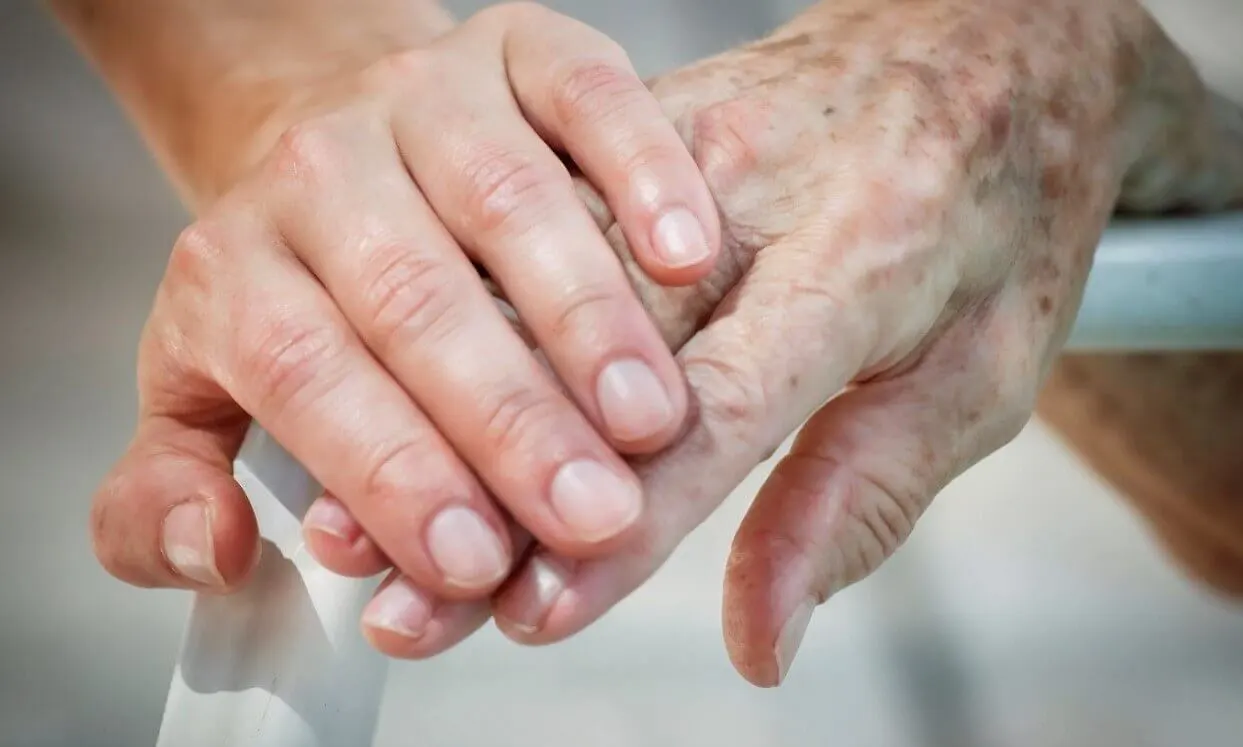Dementia Care Over The Holidays
Dementia Care Over The Holidays
The holidays are a time of celebration, gratitude, and connection with our loved ones. But for people living with dementia and their caregivers, the holidays can also bring some challenges and stressors. Dementia is a progressive condition that affects a person’s memory, cognition, and behavior, making it difficult to cope with changes and unfamiliar situations. The holidays can be overwhelming and confusing for people with dementia, as they may not remember the names and faces of their family and friends, the meaning and traditions of the holidays, or the events and activities around them. Caregivers may also feel anxious and exhausted as they have to balance their own needs and expectations with those of the person they are caring for.
However, this does not mean people with dementia and their caregivers cannot enjoy the holidays. With some planning, preparation, and adaptation, the holidays can be a joyful and stress-free experience for everyone involved. This article will share tips and suggestions for dementia care over the holidays based on the latest research and expert advice. We will cover the following topics:
- Tips for planning and preparing for the holidays
- Tips for enjoying the holidays with family and friends
- Tips for adapting gift-giving and traditions
- Tips for taking care of yourself and your health
We hope these tips will help you and your loved one with dementia have a happy and healthy holiday season.

Key Takeaways
- Dementia is a condition that affects a person’s memory, cognition, and behavior, making it hard for them to cope with changes and unfamiliar situations.
- The holidays can be challenging and stressful for people with dementia and their caregivers, as they may have to deal with travel, visitors, noise, and disruption of routines.
- With some planning, preparation, and adaptation, the holidays can be a joyful and stress-free experience for people with dementia and their caregivers.
- Some of the tips for dementia care over the holidays include making a plan with the person who has dementia, minimizing the stress of travel, involving the person in the holiday activities, communicating with family and friends, choosing suitable and meaningful gifts, being flexible and creative with the traditions, and taking care of your physical, mental, and emotional well-being.
- Hospice and palliative care services, support groups, and online resources are some sources of support and help for caregivers during the holidays.
Tips for planning and preparing for the holidays
The first step to ensure a smooth and enjoyable holiday season is to make a plan with the person who has dementia. Ask them what they want and how they feel about the holidays, and respect their preferences and opinions. Some people with dementia may wish to participate in the holiday festivities, while others may prefer to stay home and avoid the crowds and noise. Some people may enjoy reminiscing about holidays, while others may find it upsetting or confusing. Some people may have specific dietary or medical needs that need to be considered. By involving the person with dementia in the planning process, you can ensure that they feel valued and comfortable and that their needs and wishes are met.
Another aspect of planning and preparing for the holidays is minimizing travel stress if you and your loved one with dementia are planning to visit another place or receive visitors at your home. Travel can be exhausting and disorienting for people with dementia, as they have to deal with unfamiliar environments, people, and situations. Here are some ways to make travel easier and safer for people with dementia and their caregivers:
- Avoid traveling during peak times, such as weekends or holidays, when the traffic, crowds, and delays are likely higher.
- Pack familiar and essential items for the person with dementia, such as their medication, identification, contact information, clothing, toiletries, and comfort items, such as a blanket, a pillow, or a stuffed animal.
- Keep a close eye on the person with dementia during the travel, and do not leave them alone or unattended. They may wander off, get lost, or become agitated or distressed.
- Allow plenty of time for rest, breaks, and snacks during the travel, and do not rush or pressure the person with dementia. They may need more time to adjust and cope with the changes and transitions.
- If possible, choose a mode of travel that is familiar and comfortable for the person with dementia, such as driving, taking a train, or flying. Avoid unfamiliar or stressful travel modes, such as buses, subways, or boats.
Suppose you cannot travel or visit your loved ones in person. In that case, you can also consider some alternative types of holiday for people with dementia and their caregivers, such as:
- Respite care: Respite care is short-term care that provides relief and support for caregivers while ensuring that the person with dementia is well cared for in a safe and comfortable environment. Depending on your needs and preferences, respite care can be provided at home, in a residential facility, or a community center. Respite care can allow you to take a break from your caregiving duties and enjoy some time for yourself or with your family and friends.
- Day trips: Day trips are a great way to enjoy the holiday season without traveling far or staying overnight. You and your loved one with dementia can visit a nearby interesting and accessible place, such as a park, a museum, a zoo, or a shopping mall. You can also join a local group or organization that organizes day trips for people with dementia and their caregivers and meet others who share your experiences and challenges.
- Home visits: Home visits are another option for people with dementia and their caregivers who prefer to stay at home and avoid the hassle and stress of travel. You can invite your family and friends to visit you at your home and enjoy quality time together. You can also use technology to connect with your loved ones who cannot visit you in person, such as via video calls, messaging apps, or digital cards.
Tips for enjoying the holidays with family and friends
The holidays are a time to celebrate and reconnect with our family and friends, but they can also be stressful and overwhelming for people with dementia and their caregivers. People with dementia may not recognize or remember their relatives and friends, or they may feel anxious and embarrassed by their condition. They may also have difficulty following the conversations, coping with the noise, or participating in the activities. Caregivers may feel guilty or frustrated as they have to deal with the expectations and reactions of their family and friends while also taking care of the person with dementia.
However, this does not mean that people with dementia and their caregivers cannot enjoy the holidays with their family and friends. With some communication, involvement, and technology, the holidays can be a fun and memorable experience for everyone involved. Here are some tips for enjoying the holidays with family and friends:
- Communicate with your family and friends about the situation and the safety precautions you are taking. Let them know about the person’s condition, abilities, and limitations and how they can help and support you and the person with dementia. For example, you can ask them to speak slowly and clearly, to use simple and familiar words, to avoid correcting or arguing with the person, and to be patient and respectful. You can also inform them about the safety measures you are following, such as wearing masks, washing hands, and keeping a safe distance, and ask them to do the same.
- Involve the person with dementia in the holiday activities as much as they are able and willing to. You can find some ways to engage the person with dementia in the holiday festivities, such as playing games, singing songs, sharing stories, or looking at pictures. You can also ask the person to help you with simple and enjoyable tasks, such as setting the table, wrapping the gifts, or decorating the tree. These activities can stimulate the person’s senses, memory, and emotions and make them feel valued and included.
- Use technology to connect with your loved ones who cannot visit you in person due to the distance, the pandemic, or other reasons. You can use video calls, messaging apps, or digital cards to communicate and celebrate with your family and friends far away. You can also send them some photos or videos of the person with dementia and the holiday activities and ask them to do the same. Technology can help you and the person with dementia stay in touch and feel closer to your loved ones, even if you cannot see them face to face.
Tips for adapting gift-giving and traditions
Gift-giving and traditions are an essential part of the holiday season, but they can also be a source of joy or frustration for people with dementia and their caregivers. People with dementia may not understand or appreciate the gifts they receive, or they may have trouble opening or using them. They may also need some clarification or upsetting of traditions, such as the lights, the music, or the food. Caregivers may feel disappointed or stressed as they have to find suitable and meaningful gifts for the person with dementia and to adapt or change some of the traditions they used to enjoy.
However, this does not mean that people with dementia and their caregivers cannot enjoy gift-giving and traditions. With some flexibility and creativity, gift-giving and traditions can be a wonderful and rewarding experience for people with dementia and their caregivers. Here are some tips for adapting gift-giving and traditions:
- Choose suitable and meaningful gifts for the person with dementia that match their interests, abilities, and needs. You can look for some gifts that are sensory, practical, or personalized, such as:
- Sensory gifts: These stimulate the person’s senses, such as sight, sound, touch, smell, or taste. For example, you can give the person a soft blanket, a music box, a scented candle, a box of chocolates, or a flower bouquet.
- Practical gifts: These help the person with daily activities, such as dressing, grooming, eating, or sleeping. For example, you can give the person comfortable clothing, a large-print calendar, a photo phone, a weighted blanket, or a pill organizer.
- Personalized gifts: These are gifts that reflect the person’s personality, history, or preferences. For example, you can give the person a photo album, a personalized mug, a favorite book, a hobby kit, or a memory box.
- Be flexible and creative with your holiday traditions, and adapt them to the person’s current abilities and comfort level. You can simplify or modify some of the traditions, such as the decorations, the menu, or the timing, to make them more accessible and enjoyable for the person with dementia. For example, you can:
- Simplify the decorations: You can reduce the number and intensity of the lights, the ornaments, and the colors to avoid overstimulating or confusing the person. You can also avoid using decorations that look like food, such as candy canes or gingerbread men, as they may tempt the person to eat them.
- Change the menu: You can prepare some dishes that suit the person’s dietary needs and preferences that are easy to chew, swallow, and digest. You can also avoid serving alcohol, caffeine, or spicy foods, as they may affect the person’s mood, behavior, or sleep.
- Celebrate earlier in the day: You can schedule the main events and activities of the holiday earlier in the day, when the person is more alert and energetic, and avoid the evening, when the person may be more tired and irritable. You can also limit the duration and the number of events and activities to prevent exhausting or overwhelming the person.
Tips for taking care of yourself and your health
The last but not most minor tip for dementia care over the holidays is to take care of yourself and your health. Caregiving is demanding and rewarding but can also affect your physical, mental, and emotional well-being. During the holidays, you may face additional stress and pressure, juggling your caregiving duties with your personal and family obligations. You may also feel isolated, lonely, or guilty, needing more time or energy to enjoy the holiday season.
However, this does not mean you must neglect yourself and your health. Taking care of yourself and your health is not selfish or irresponsible but essential and beneficial for you and the person you care for. By caring for yourself and your health, you can prevent burnout, illness, and depression and improve your mood, energy, and resilience. Here are some tips for taking care of yourself and your health during the holidays:
- Get enough rest, eat well, and stay hydrated. These are the essential steps to maintain physical health and wellness. Try to get at least seven to eight hours of sleep every night and take naps during the day. Eat a balanced and nutritious diet, and avoid skipping meals or snacking on junk food. Drink plenty of water, and limit your intake of alcohol, caffeine, or sugary drinks.
- Seek and accept support and help from others. You do not have to do everything by yourself, and you do not have to feel guilty or ashamed for asking for help. Many sources of support and assistance are available for you, such as hospice and palliative care services, support groups, or online resources. Hospice and palliative care services can provide you with medical, emotional, and spiritual care, respite care, counseling, and bereavement support. Support groups can offer you a safe and supportive space to share your experiences, feelings, and challenges with other caregivers who understand what you are going through. Online resources can provide information, advice, and guidance on various aspects of dementia care and caregiving.
- Do something that makes you happy and relaxed. You deserve to have some fun and enjoyment during the holidays, and you do not have to feel guilty or selfish for doing so. Find time and space for yourself, and do something that makes you happy and relaxed, such as reading a book, listening to music, watching a movie, or walking. You can also treat yourself to something special, such as a massage, a manicure, or a gift. Doing something that makes you happy and relaxed can help you reduce stress, boost your mood, and recharge your energy.














3 Comments
Great article. Thank you for your post, it helps me to development my work.
Your article was excellent and erudite. Thanks
I find these article very useful and appropriate and also share them with my colleagues.
Comments are closed.